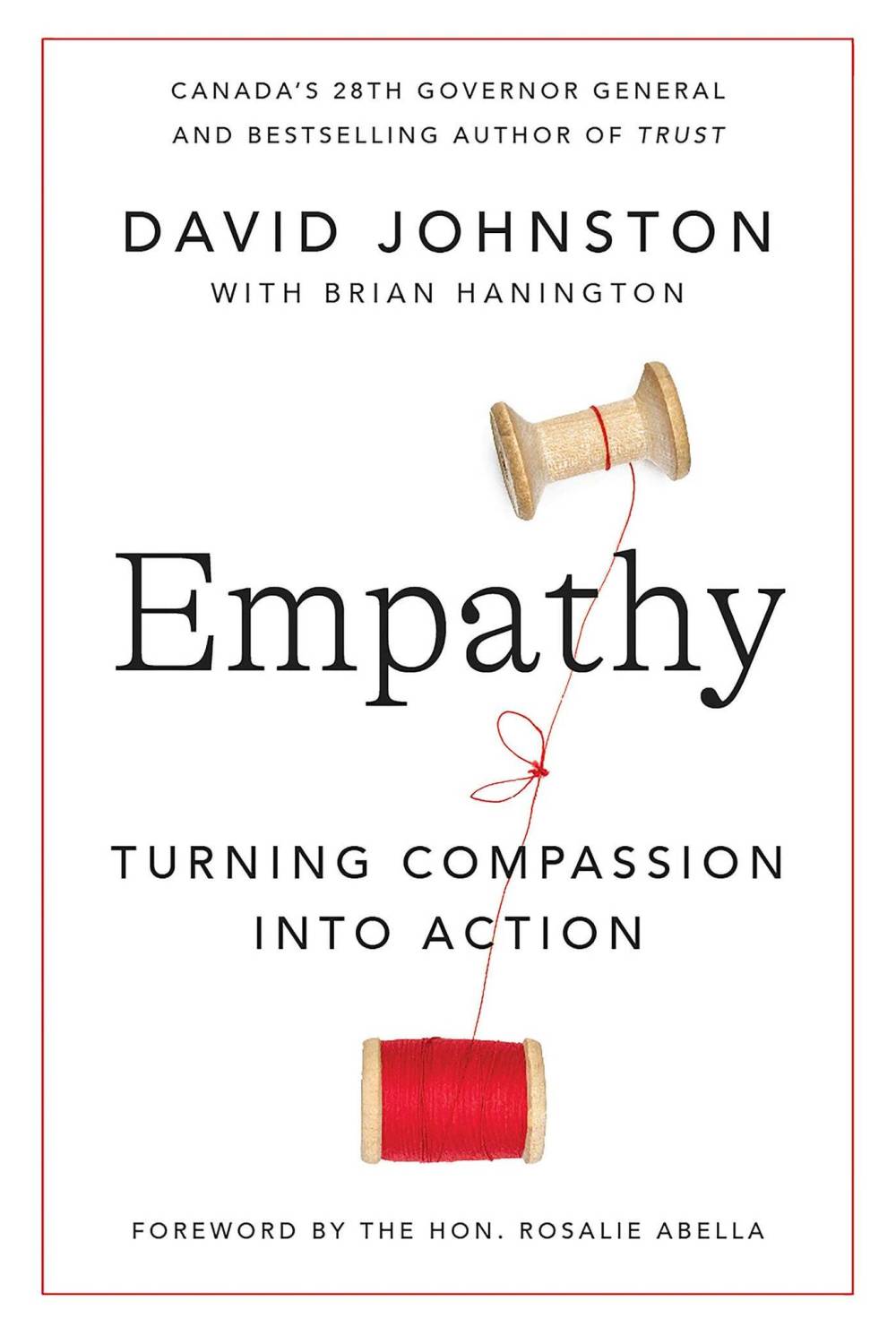A deeper understanding
Johnston ponders notions of empathy in memoir turned instruction manual
Advertisement
Read this article for free:
or
Already have an account? Log in here »
To continue reading, please subscribe:
Monthly Digital Subscription
$1 per week for 24 weeks*
- Enjoy unlimited reading on winnipegfreepress.com
- Read the E-Edition, our digital replica newspaper
- Access News Break, our award-winning app
- Play interactive puzzles
*Billed as $4.00 plus GST every four weeks. After 24 weeks, price increases to the regular rate of $19.00 plus GST every four weeks. Offer available to new and qualified returning subscribers only. Cancel any time.
Monthly Digital Subscription
$4.75/week*
- Enjoy unlimited reading on winnipegfreepress.com
- Read the E-Edition, our digital replica newspaper
- Access News Break, our award-winning app
- Play interactive puzzles
*Billed as $19 plus GST every four weeks. Cancel any time.
To continue reading, please subscribe:
Add Winnipeg Free Press access to your Brandon Sun subscription for only
$1 for the first 4 weeks*
*$1 will be added to your next bill. After your 4 weeks access is complete your rate will increase by $0.00 a X percent off the regular rate.
Read unlimited articles for free today:
or
Already have an account? Log in here »
Hey there, time traveller!
This article was published 25/02/2023 (937 days ago), so information in it may no longer be current.
In his new book, former governor general of Canada David Johnston tells us “We humans have a slew of problems to think our way through, and the clock is ticking.”
Empathy: Turning Compassion into Action is part memoir and part instruction manual. It is Johnston’s optimistic answer to society’s ills. It is sometimes overly optimistic, considering the state of the world today.
The 28th governor general is the author or co-author of more than 30 other books. His latest works prior to Empathy were Trust, The Idea of Canada: Letters to a Nation and Ingenious. He has collaborated with Brian Hanington on many books, including this one.

Signal 2023
An optimism runs through the latest book by David Johnston, which offers practical and empathetic suggestions to put into practice.
Johnston was also a professor of law for 45 years, president of the University of Waterloo and principal of McGill University. He has degrees from Harvard, Cambridge and Queen’s.
His work in Empathy covers many issues: environmental crises, climate change, the COVID-19 pandemic, racism, immigration, health care, gender inequality, the criminal justice system, Truth and Reconciliation, the invasion of Ukraine, violence and suicide are all touched upon here.
“So whereas sympathy suggests feeling the same feelings as another, empathy means appreciating their circumstances accurately enough to be able to help,” says Johnston. And so each short chapter ends with practical steps that individuals, communities and nations can put into effect to attempt to change the world through kindness.
Empathy is somewhat dry and academic at times, and at other points personal. Johnston is at his most interesting when he draws from personal stories in his life, including many endearing stories about his family and his childhood years.
Johnston is quick to point out he has been married to his wife Sharon for 57 years, and that they have five daughters and 14 grandchildren. He mentions them often in his book and illustrates how they have helped him to grow on his own journey of compassion.
Johnston confesses that he was not an empathetic child, mostly driven by his ambition to join the National Hockey League. His mother, however, kept her eye focused on her children’s education, and had other opinions.
His father, Johnston tells us, had “difficulty with drink” and it fell upon Johnston’s mother to support the family and his two siblings until, sadly, her own health failed. But Johnston excelled at university and sports and forged ahead.
Empathy is highly structured and is divided into three major sections: things people can do as individuals, communities and nations. Each section consists of five chapters that expand upon Johnston’s ideas concerning the struggles of our times.
Each section also closes with practical and empathetic suggestions that people, communities and nations can put into practice. Johnston covers a lot of territory and many complex issues.

Empathy
On immigration, Johnston says, “Canada’s population is aging; by the end of the 2020s, our worker-to-retiree ratio will descend to three-to-one, far too low to sustain our health care system…” With declining birth rates, Johnston says, we need more workers and young families to immigrate and a speedier system to allow these people to enter the country.
On health care, Johnston quotes Tommy Douglas several times, and tells us that “Health care that is accessible, affordable, and of high quality is a basic human right, and, by acknowledging that right, we shoulder our responsibility as a collective to advance the well-being of all individuals.”
There is so much more. In his appendix, the two co-authors list dozens of intriguing movies and books that expand upon the notions of kindness and compassion.
At times, Empathy seems inordinately optimistic, yet as Johnston says, “We can always find creative and innovative paths to make the world around us better, smarter, and kinder.” It may just be our only hope.
Empathy is recommended — for politicians, leaders of organizations and all individuals.
Cheryl Girard is a Winnipeg writer.


